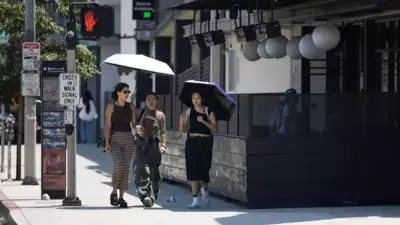
As summer temperatures soar, the Southwest United States is experiencing record-breaking heat waves, raising concerns among residents and officials alike. With mercury levels hitting unprecedented highs, cities across the region are bracing for the potential health impacts and infrastructure challenges that accompany such extreme weather.
Understanding the Heat Wave
Meteorologists report that this year’s heat wave is one of the most severe on record, with several cities, including Phoenix, Las Vegas, and El Paso, recording temperatures well above 110 degrees Fahrenheit. The National Weather Service has issued excessive heat warnings, urging residents to take precautions as the sweltering heat persists.
This intense heat is not just a seasonal anomaly; it reflects a troubling trend linked to climate change. Experts warn that rising global temperatures contribute to increasingly severe weather patterns, making heat waves more frequent and intense.
Health Risks
The health implications of such extreme heat cannot be overstated. Vulnerable populations, including the elderly, children, and those with pre-existing health conditions, are at a higher risk of heat-related illnesses. Heat exhaustion and heat stroke are serious concerns, prompting health officials to advise residents to stay hydrated and limit outdoor activities during peak temperatures.
Local hospitals are preparing for an influx of patients suffering from heat-related ailments, and community organizations are mobilizing to provide support for those in need. Cooling centers are being established in various cities to offer relief to residents without access to air conditioning.
Infrastructure Challenges
The extreme heat poses significant challenges for infrastructure as well. Transportation systems, including roads and railways, are at risk of buckling under the intense heat. In some areas, asphalt roads have already begun to soften, leading to hazardous driving conditions. Utilities are also on high alert, as the demand for electricity soars due to increased air conditioning use.
Power outages can occur when the electrical grid becomes overwhelmed, further exacerbating the situation. Local governments are urging residents to conserve energy whenever possible, particularly during peak usage hours.
Community Response
In response to the ongoing heat wave, city officials are taking proactive measures to protect public health and safety. Community outreach programs are being launched to educate residents about the dangers of extreme heat and to encourage them to check on vulnerable neighbors.
Additionally, emergency services are on standby, prepared to assist those in distress due to the heat. Local health departments are distributing informational materials on recognizing the signs of heat-related illnesses and how to respond effectively.
Conclusion
As the Southwest continues to grapple with record-breaking heat waves, the importance of preparedness and community support cannot be overstated. While this heat wave serves as a stark reminder of the realities of climate change, it also highlights the resilience of communities coming together to face these challenges.
Residents are encouraged to stay informed, take necessary precautions, and support one another during this challenging time. With the threat of extreme weather likely to persist, it is crucial to adapt and prepare for the future.
image source – indiatimes.com


